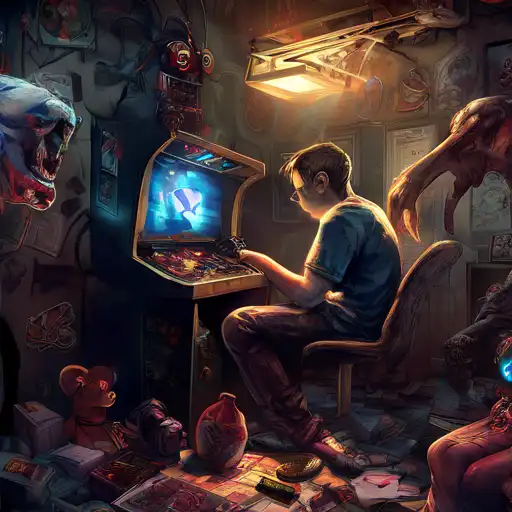Introduction to Gaming Addiction
Gaming addiction has become a significant concern in the digital age, affecting individuals across various age groups. This article delves into the psychological underpinnings of gaming addiction, offering insights into why games can become so engrossing and how they impact mental health.
The Psychological Appeal of Video Games
Video games are designed to be engaging, offering rewards, challenges, and a sense of achievement. The psychological appeal lies in their ability to provide instant gratification, a sense of community, and an escape from reality. These elements can make games highly addictive for certain individuals.
Reward Systems and Dopamine
One of the key factors in gaming addiction is the brain's response to in-game rewards. Completing challenges or achieving goals in games releases dopamine, a neurotransmitter associated with pleasure and motivation. This can create a cycle of addiction as players seek out more rewards.
Escapism and Social Connection
For many, games offer an escape from stress or dissatisfaction with real life. Additionally, multiplayer games provide a sense of belonging and social interaction, which can be particularly appealing to those who feel isolated.
Identifying Gaming Addiction
Gaming addiction is characterized by excessive or compulsive use of video games that interferes with daily life. Symptoms may include neglecting responsibilities, withdrawal symptoms when not playing, and a loss of interest in other activities.
Signs and Symptoms
- Preoccupation with gaming
- Withdrawal symptoms when not playing
- Need to spend increasing amounts of time gaming
- Unsuccessful attempts to cut back on gaming
- Loss of interest in other hobbies or activities
Addressing Gaming Addiction
Understanding the psychological triggers of gaming addiction is the first step toward addressing it. Strategies may include setting limits on gaming time, seeking alternative activities, and professional counseling for severe cases.
Prevention and Management
Preventing gaming addiction involves promoting healthy gaming habits and ensuring a balanced lifestyle. For those already struggling, management strategies can include therapy, support groups, and developing new hobbies.
Conclusion
Gaming addiction is a complex issue rooted in psychological mechanisms. By understanding these triggers, individuals and families can take proactive steps to manage gaming habits and maintain mental health. For more insights into mental health and behavior, explore our mental health resources.
